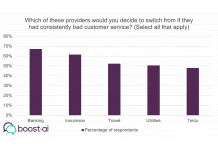AXA Forms Strategic Partnership with Ant Bank and...
- 09.04.2025 09:55 am
Appian Launches Connected Underwriting for Life...
- 26.10.2023 10:30 am
Ecommpay Announces US Local Acquiring with Insurance...
- 15.08.2023 09:00 am
The Future is Now: Digital and Intelligent Upgrade...
- 18.07.2023 09:35 am
New Research: Insurance and Banking Most at Risk of...
- 04.05.2023 10:20 am
Reuters Events Exclusive Report: Insuring Tomorrow –...
- 29.03.2023 09:20 am
Five Priorities for Optimum Insurance Product Strategy...
- 30.01.2023 09:30 am
The Ardonagh Group Selects AutoRek to Drive Efficiency
- 08.12.2022 11:30 am
Risky Business: Insurers Neglect Payments at Their...
- 26.10.2022 10:35 am
Stubben Edge Group acquires Bonhill Group’s Business...
- 26.08.2022 10:30 am
iDenfy Announces its New Cyber Insurance by Landing a...
- 26.07.2022 11:55 am
“Fintech will Drive Customer Centricity for the Rest...
- 09.06.2022 11:30 am






















